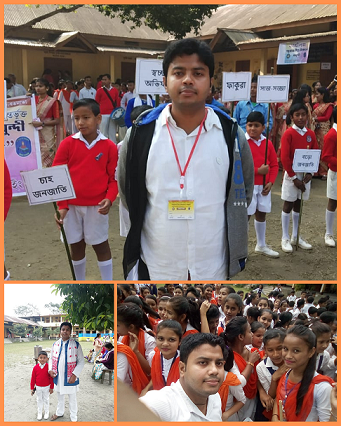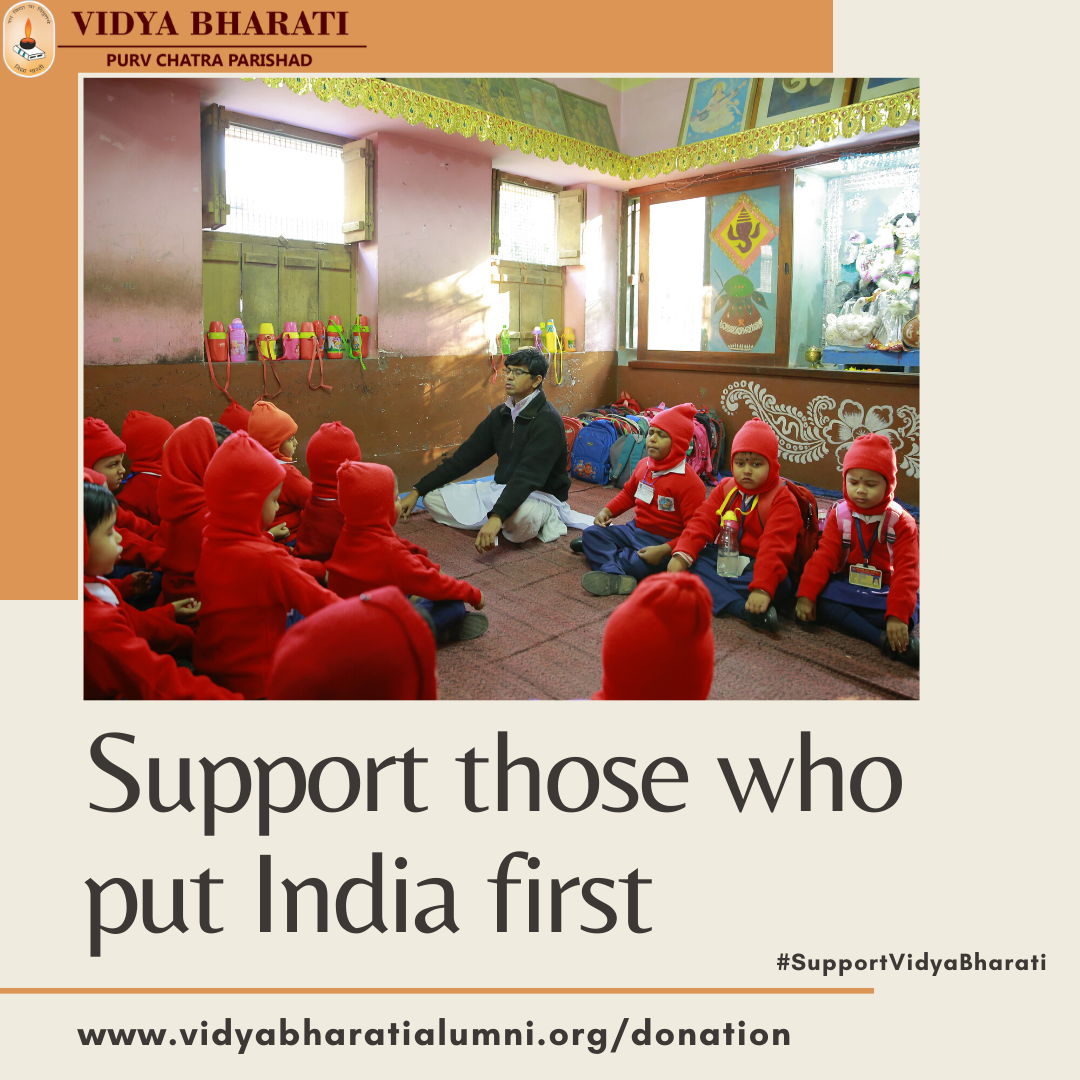Nayan Jyati Kalita - A Sanskrit Teacher at Panchatirtha Sankardev Shishu Vidya Niketan, Hajo is a 'Guru' in its true essence
Nayan Jyati Kalita - A Sanskrit Teacher at Panchatirtha Sankardev Shishu Vidya Niketan, Hajo is a 'Guru' in its true essence
"बंदउँ गुरु पद कंज कृपा सिंधु नररूप हरि।
महामोह तम पुंज जासु बचन रबि कर निकर"
(I worship the lotus feet of Guru Maharaj, who is the ocean of grace and Shri Hari and whose words are a group of rays of sun to destroy the thick darkness of great attachment)
In India a teacher is regarded as a Guru – the one who not only imparts education, but guides our life. The Guru-Disciple tradition is a unique feature of Bharatiya culture. The Guru is the one who takes out ignorance from us. Hence from the very beginning of education, a child is taught to respect the teachers and regard them as God.
Nayan Jyoti Kalita, an alumnus of Shankardev Shishu Niketan, Bamundi holds the same respect and love for his teachers as he does for the Divine. Hence after completing his schooling Nayan joined Bamundi Mahavidyalaya to complete his Graduation in Sanskrit. He then pursued a Diploma in Elementary Education (D.El.Ed.) and joined Vidya Bharati’s Panchatirtha Sankardev Shishu Vidya Niketan, Hajo as a Sanskrit teacher.
“I took up teaching in order to impart the true knowledge of India to the young generation, which I had acquired from my teachers at Vidya Bharati School”, mentions Nayan.
Nayan feels, to understand the very heart and soul of the Indian culture, one need to know the language that protects it. “If we tear our roots, we endanger the tree. The very base of Indian culture and history is Sanskrit. It is regarded as the language of Gods – Devabhasha. So it is important for each child to learn Sanskrit”, he shares.

Nayan further adds, “The concept of zero and the metric system came from India. Modern scientists have used these concepts to create many new things and crossed new horizons. But our old Sanskrit texts speak of even more advanced things that our modern scientists can only dream of at the moment”.
If we look at India,the knowledge of not only the Vedas, but also the Puranas, the Itihaasas (epics), is all contained in Sanskrit. We also find in it discourses on law, art, music, dance, literature, medicine, architecture, martial arts, agriculture, political science, astronomy, astrology, mathematics, ayurveda and most importantly, Sankalpa Shakti Vidya, the knowledge of thought power, and above all, the knowledge of the Self.
“Translations cannot accurately reflect the perfection of Sanskrit. One cannot research the old texts from translations. It will be a situation of the blind leading the blind. The translated version can be misinterpreted if the language into which it is translated is not equally perfect”, mentioned Nayan.
He also shared that most of the social problems will be minimized if people learned this ancient language of India. The Divinity is there itself in Sanskrit.
If you are a Vidya Bharati alumni and would like to share your experiences and achievements as well, please email us your contact details to info@vidyabharatialumni.org and we will contact you back.
Category
- Alumni Interviews (191)
- Social Service (132)
- Alumni Achievements (27)
- Vidya Bharati Schools (27)
- Events and News (22)
- Vidya Bharati Teachers (12)
- Environment and Sustainability (4)
- Social (1)

